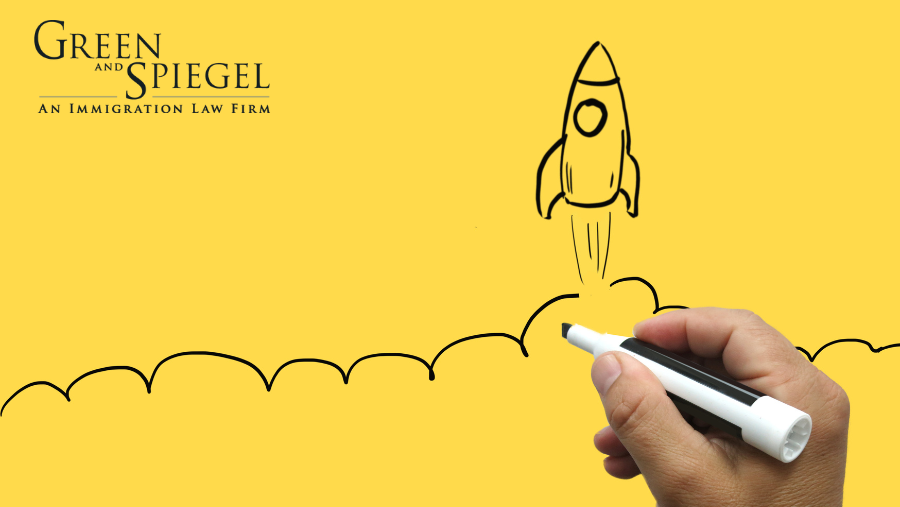
There’s an old rumor that claims a Ford truck crosses the Canada/US border 8 times as it is manufactured; taking advantage of various talents, abilities, and benefits offered by the two neighboring countries and their populations. This story informs the closest-knit ties between Canada and the United States. Between them, the world’s largest undefended border brings with it untold amounts of interconnectivity, relations, and massive ability to mutually benefit.
H-1B Lottery Uncertainty
This ability to work together extends to the work authorization world, especially as many American employers are gearing up for the ever-daunting, ever-important “H-1B Lottery Season”. Wherein, the most popular work visa in the United States is distributed via a lottery system. For many foreign nationals in the United States, this lottery is indeed the only way for them to secure work authorization, especially those nearing the end of their Post-Graduate Optional Practical Training (OPT) period.
Employers sponsor their current or potential employees for entry and are vulnerable to the unpredictable nature of the lottery system. No employee, no matter their salary, experience, or business-critical work, is guaranteed selection. In fact, their odds are getting worse. Year after year, new records are set for entrants into this true lottery, as companies seeking to secure H-1B work authorization for their specialized workers are facing associated longer and longer odds of success. 2024’s H-1B lottery saw a near-doubling of 2023’s entries, and more than a 150% increase since 2022, per published US Citizenship and Immigration Services data. There are not corresponding increases in the number of H-1B visas available, so odds are getting worse and worse as the demand for foreign specialized work grows, and US Congress does little to mitigate.
Yearly, hundreds of thousands of skilled foreign nationals enter the H-1B lottery, only to find ever-increasing chances, and decreasing abilities for their companies to retain them and keep their best talent doing their best work. As such, and in recognition of these ongoing long odds, US-based employers should, and indeed must, evaluate alternatives to keep their employees within the fold, and a broader continental perspective can potentially provide shared long-term benefits for the employee and company alike.
Transfer to Canada as H-1B Lottery Alternative
Consider transfers to Canada, temporarily or long-term, for the employees who fall victim to the long odds of the H-1B lottery without alternatives. For multinational companies with Canadian entities, it provides a straightforward path to work authorization to keep them working for the company at large, while accessing a variety of new work authorization options for the future. If those employees decide they do not want to stay in Canada, potential transferee visas back to the United States become available to them after 1 year of Canadian work experience.
For many employers, transferring their initially US-based employees to Canada provides a welcome and feasible solution as a H-1B lottery alternative where there simply is none within the United States. It provides them with a predictable and knowable transfer process to a location often in the same time zone as their initial location. This, in turn, keeps the employee as productive as possible relative to their team at large. For the employee, beyond the practical work benefits, they enjoy living and working in a fantastic country, with strikingly more supportive laws for foreign workers both in the short and long terms. Additionally, for many employees, especially those of Chinese and Indian nationality, Canada offers a far more straightforward path towards permanent residence than the comparable Green Card process in the USA. The very definition of a win-win-win.
The transfer process itself is not onerous, and with dutiful planning, many employers can provide their employees with a process that makes a potentially stressful process as seamless as possible. However, the time is now, as employers are canvassing employees for entrance into the H-1B lottery, to consider these transfers as a means of both providing sufficient time for the processing of these Canadian visa applications, as well as providing their employees with time to evaluate their options as it affects their personal lives. When discussing with employees their entrance into the lottery, presenting a Canadian transfer as an alternative-case scenario often provides great comfort of “there’s a plan” for employees all too familiar with the harsh realities of the US immigration system.
If you, or your company, are interested in finding a H-1B lottery alternative to keep your best talent doing their best work, please contact Green and Spiegel today to discuss how we can help support Canadian relocation on a short-, medium-, or long-term basis. Additionally, tune into the Green and Spiegel webinar Canada-U.S. 2024: Business Across the Border with lawyers Cristina Guida and Benjamin Green January 31st, 2024, to learn more about the latest developments in Canadian-American immigration.






